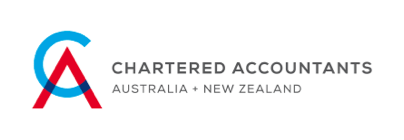Trust accounts play a vital role in many industries, acting as secure place for client funds to be managed with care and integrity. Whether in real estate, law, accounting, or other sectors, proper trust account audits are important to maintain compliance and transparency.
In this guide, Allen Audit & Advisory Manager Katrina McPhee explores the fundamentals of trust accounts, the role of auditing, common challenges, and best practices for effective management.
What are trust accounts?
“A trust account is a special type of financial account established to hold funds on behalf of a client or third party,” says Katrina.
“These accounts are common in industries where businesses manage client money, such as deposits, fees, or pre-paid funds.
“A common example is when a real estate agent holds a buyer’s deposit until settlement. Using a trust account protects the buyer and seller and ensures the funds are used fairly and in line with the property’s contract of sale.”
Why do they matter?
“These types of accounts are used to safeguard funds and make sure they’re not mixed with the operational accounts of the third party or used improperly,” says Katrina.
“Proper management and auditing of trust accounts are essential to maintaining the legal responsibility these accounts require—protecting both businesses and clients.”
Key regulations in Australia
Katrina says trust accounts in Australia are governed by strict regulations that vary by industry and state. “There are some common requirements across all, which include keeping trust funds separate from operational funds; maintaining detailed records with clear audit trails; and auditing trust accounts regularly to ensure compliance,” says Katrina.
“In some cases, like dealing with interest earned on trust accounts, the rules can vary across trust account types.”
Katrina warns failing to keep to the rules can lead to serious penalties. “It’s essential to manage and audit trust accounts correctly to avoid legal penalties, potential damage to your business or personal reputation, and even loss of licence.”
The role of auditing
Auditing trust accounts is a regulatory requirement, but it’s also an important safeguard for all parties involved. Katrina says the auditing process typically includes transaction verification, account reconciliation, and compliance checks.
“A trust account audit will confirm debits and credits are recorded and authorised, cross-check balances with statements and client records, and confirm accuracy of record keeping and treatment of funds is in line with legislation,” says Katrina.
“These steps ensure the account meets all the regulatory requirements, as well as builds confidence in a business’s ability to manage client funds responsibly.”
Common challenges
Katrina says trust accounts face common challenges in record-keeping, navigating the regulations, and mismanagement.
“I can’t express how important it is to make sure all records are complete for compliance and to ensure a smooth audit process,” says Katrina.
“Navigating the unique rules for trust accounts across different states and industries can be daunting, which is why using a specialised trust account auditing team like Allen Audit & Advisory can make all the difference.
“Trust accounts are also susceptible to fraud or mismanagement—intended or otherwise—especially in high-volume environments. Lack of knowledge in legislative requirements and technology systems can hinder accurate tracking and reporting.
“So, it’s important to proactively address these common challenges to successfully run trust accounts.”
Trust account best practices
To streamline trust account management and ensure audit readiness, Katrina recommends businesses use specialised accounting software, conduct regular internal reviews, and train all staff in compliance requirements and processes.
“By following these practices and maintaining detailed records and documentation, businesses can reduce risk, ensure compliance and foster trust with their clients,” says Katrina.
“Then, when it comes time for external audits, you should work with an experienced auditor who understands the nuances of your industry’s specific trust account requirements.”
Trust accounts are a cornerstone of ethical business practices in many industries. While managing and auditing these accounts can be complex, a strong understanding of regulatory requirements and best practices can make the process more manageable. By prioritising transparency and accountability, businesses safeguard client funds and enhance their reputation and operational integrity.
When it comes to ensuring your trust accounts meet the highest standards of compliance and transparency, Allen Audit & Advisory is here to help. Our experienced team specialises in providing comprehensive external audits tailored to the unique needs of your industry.
Contact us today to learn how we can support your business with expert auditing services and practical advice.








